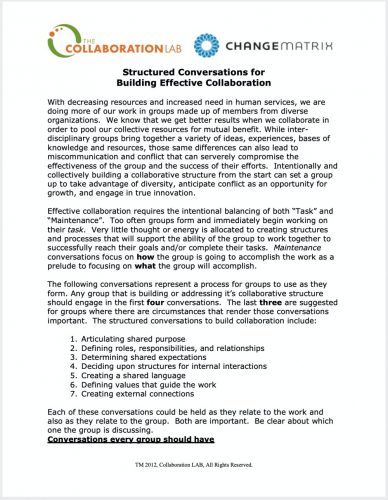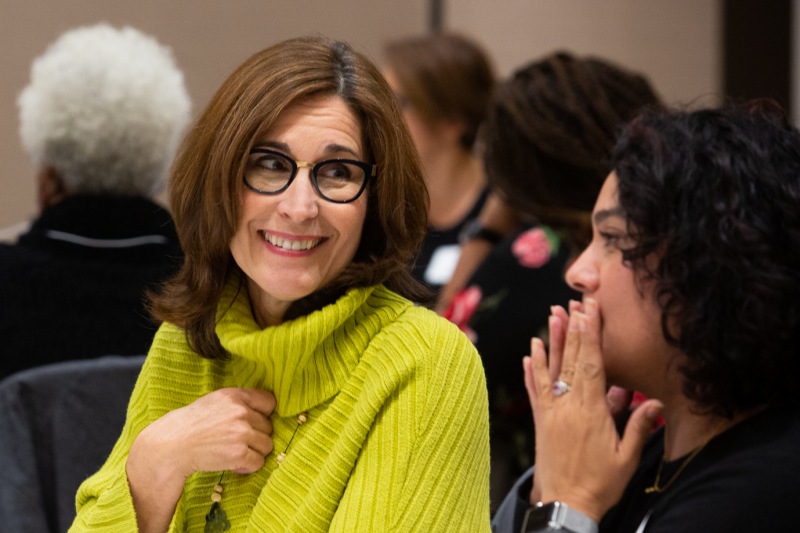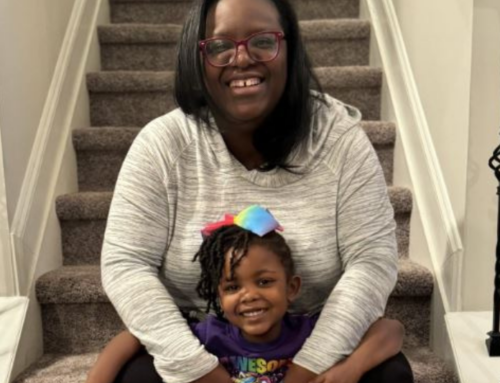 Collaboration is a best practice and, sometimes, a requirement of the work we do at Change Matrix. The complex change that we support in communities, states, and organizations must have diverse perspectives, participant engagement, and shared leadership working in collaboration with one another. Collaboration, while desired, must be intentional.
Collaboration is a best practice and, sometimes, a requirement of the work we do at Change Matrix. The complex change that we support in communities, states, and organizations must have diverse perspectives, participant engagement, and shared leadership working in collaboration with one another. Collaboration, while desired, must be intentional.
Collaboration must be grounded in mutual purpose and mutual benefit to be effective. That benefit comes from a commitment to shared learning, which requires individuals to share their knowledge and perspectives and hear and consider those from others. The diversity of thought, experience, and knowledge coming together in dialogue is the essence and the promise of collaboration.
Change Matrix has worked with collaboration groups through our Collaboration LAB initiative, a partnership with Georgetown University and Sound Options Group, to intentionally create a structure for collaboration, maintain it over time, and repair it when conflict shows up. In all of those collaboration stages, the seven structured conversations are applicable. When creating and maintaining, it is advisable to consider all seven. When repairing, when defining the conflict, emphasis on specific conversation(s) is often a primary path to resolution.
Access the tool, Structured Conversations for Building Effective Collaboration.




